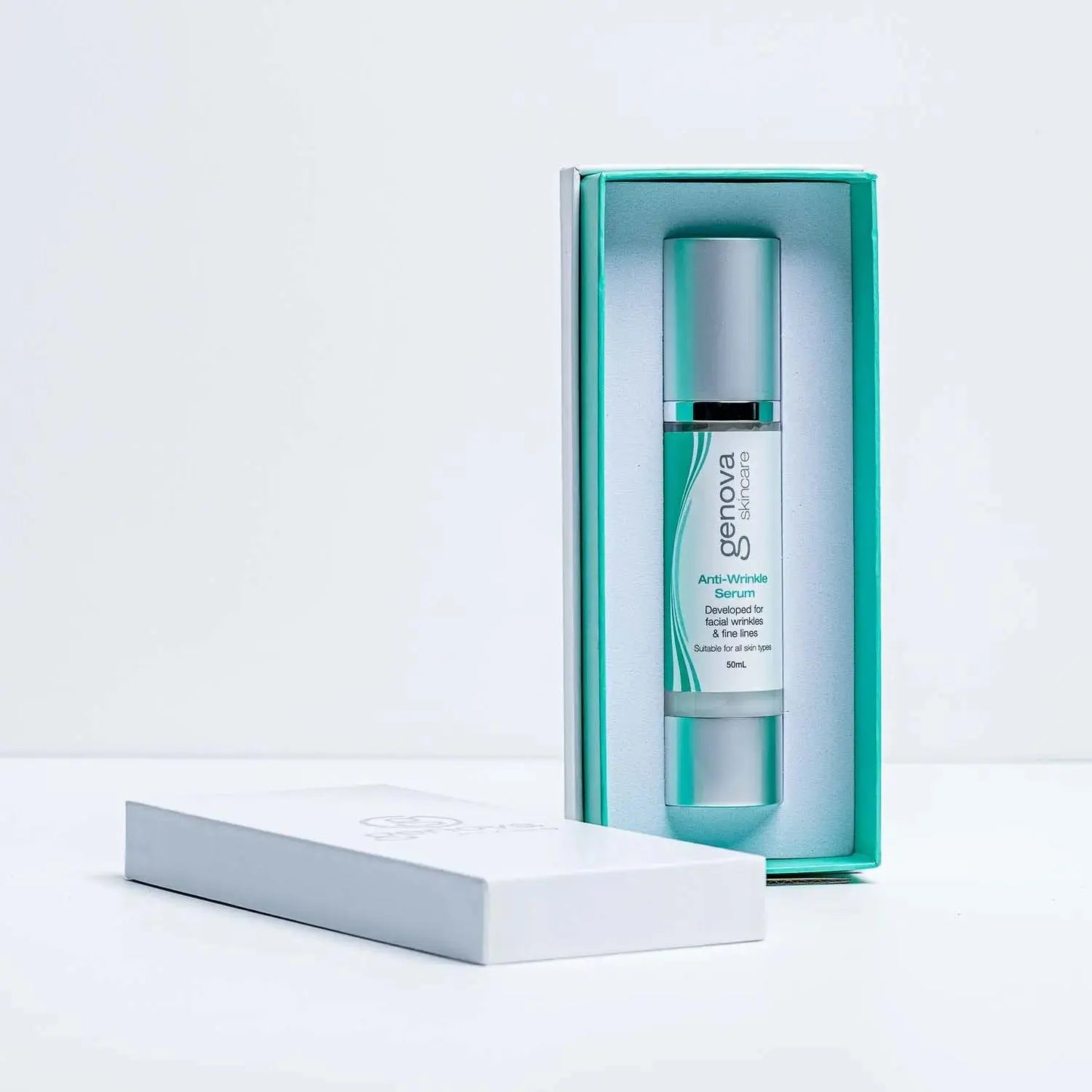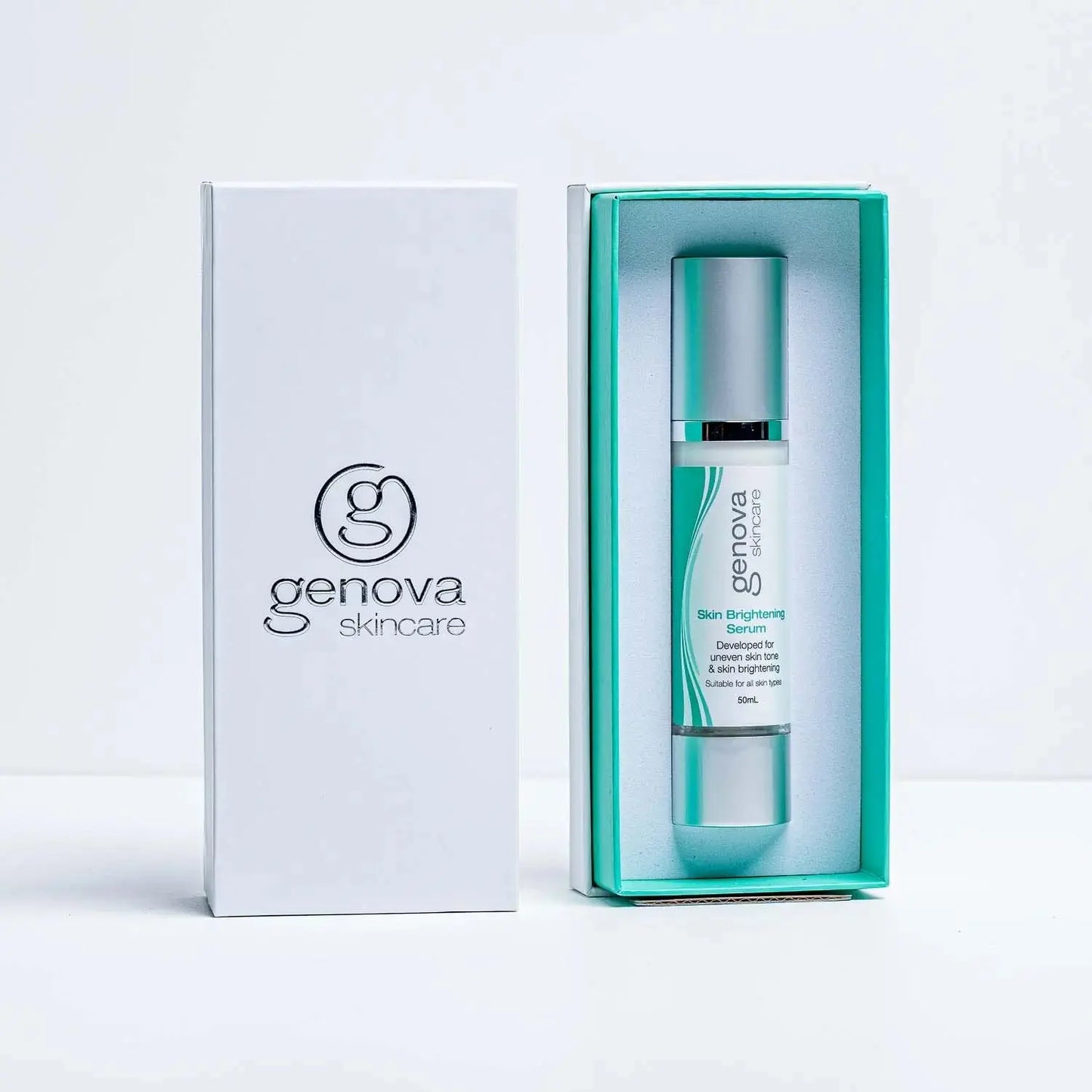Why Your Skin is Suddenly Sensitive During Menopause (And 5 Soothing Solutions)
When Your Trusted Products Suddenly Turn Against You
It starts innocently enough – perhaps a slight tingling sensation after applying your favourite moisturiser. Then, seemingly overnight, the skincare products you’ve relied on for years begin causing redness, stinging, or irritation. The perfumed body wash you’ve used for a decade now leaves your skin feeling tight and uncomfortable. Your go-to makeup suddenly seems to emphasise rather than conceal redness.
If you’re experiencing this bewildering shift in how your skin responds to products, you’re not alone. Up to 71% of women report increased skin sensitivity during menopause – yet it remains one of the least discussed skin changes of this transitional period. You’re part of a large group of women going through the same experience.
The Betrayal From Within: Understanding Menopausal Skin Sensitivity
This new sensitivity isn’t just inconvenient – it can feel like a genuine betrayal by your body. Products that once made you feel confident and comfortable now cause distress and embarrassment. The timing couldn’t be worse, arriving precisely when you’re navigating numerous other physical and emotional changes.
What makes this particularly frustrating is how unpredictable these reactions can be. One day, your skin tolerates a product; the next day, the exact product causes angry, visible irritation – often when you least expect or can afford it, like before an important meeting or social event. However, with the proper knowledge and strategies, you can start to predict and manage these reactions, giving you a sense of control.

The Hormone-Sensitivity Connection Explained
At the heart of this newfound sensitivity lies the same hormonal fluctuations responsible for your other menopausal symptoms. Here’s what’s happening beneath your skin’s surface:
- Barrier function breakdown: Estrogen is crucial in maintaining your skin’s protective barrier. As levels decline, this barrier becomes compromised, allowing irritants to penetrate more easily.
- Decreased natural oil production: Hormonal changes reduce sebum (your skin’s natural oil), leaving it more vulnerable to environmental aggressors
- Reduced moisture retention: Lower hyaluronic acid production means less water remains bound in your skin
- Altered pH balance: Your skin’s acid mantle – its first line of defence – becomes less effective.
- Inflammatory response changes: Your immune system’s response to potential irritants becomes heightened
The result? A perfect storm in which your skin simultaneously becomes more vulnerable to irritants while reacting more strongly to them.
The Hidden Emotional Impact of Sensitive Skin
The effects of menopausal skin sensitivity extend far beyond physical discomfort:
- Decreased confidence when unexpected reactions occur in social situations
- Financial stress from constantly replacing products that no longer work
- Frustration and helplessness when even “sensitive skin” products cause reactions
- Anxiety about trying new products when your skin seems to reject everything
- Loss of enjoyment in self-care rituals that once brought pleasure
Many women report feeling betrayed not only by their skin but by the beauty industry itself, which offers few solutions specifically addressing menopausal sensitivity.

Here, we present the five most effective solutions for calming menopausal sensitive skin. While you can’t reverse hormonal changes, you can reclaim comfortable, resilient skin with these targeted approaches: While you can’t reverse hormonal changes, you can reclaim comfortable, resilient skin with these targeted approaches:
1. Rebuild Your Compromised Skin Barrier
Your priority must be restoring your skin’s protective shield:
Action steps:
- Eliminate foaming cleansers containing harsh sulfates
- Introduce ceramide-rich products that mimic your skin’s natural barrier components
- Look for ingredients like niacinamide that strengthen barrier function
- Apply barrier repair products consistently for at least 4 weeks before expecting significant improvement
When your barrier is compromised, even water can irritate you. Patience and consistency with barrier-supporting products will gradually restore your skin’s natural defence system.
2. Simplify Your Routine Strategically
When sensitivity strikes, the instinct is often to try numerous “soothing” products simultaneously. This approach typically backfires.
The effective alternative:
- Temporarily reduce your routine to just 3-4 proven-safe products
- Reintroduce products one at a time, with 5-7 days between additions
- Keep a detailed skin diary noting reactions (positive and negative)
- Focus on multi-functional products to reduce the total number of ingredients contacting your skin
This methodical approach helps identify specific triggers while reducing the overall burden on your compromised skin.
3. Identify and Eliminate Hidden Irritants
Several common ingredients become problematic, specifically during menopause:
Common menopausal triggers:
- Fragrance (including “natural” essential oils like lavender and citrus)
- Alcohol (especially SD alcohol and denatured alcohol)
- Chemical sunscreen agents (oxybenzone, avobenzone)
- Glycolic acid and other AHAs at concentrations above 5%
- Preservatives like methylisothiazolinone
Even ingredients marketed as “soothing,” such as peppermint, menthol, and eucalyptus, can trigger reactions in menopausal skin due to their cooling but potentially irritating properties.
4. Introduce Anti-Inflammatory Powerhouses
Certain ingredients excel at calming reactive menopausal skin:
Evidence-backed soothers:
- Centella asiatica (also called cica or tiger grass)
- Colloidal oatmeal (forms a protective, soothing layer)
- Green tea extract (contains EGCG that reduces redness)
- Beta-glucan (calms while strengthening barrier function)
- Bisabolol (derived from chamomile, reduces irritation)
These ingredients modulate your skin’s inflammatory response, making reactions less likely and less severe when they occur.
5. Adjust Your Approach to Environmental Protection
Menopausal skin becomes hypersensitive to environmental factors – particularly sun exposure and temperature changes.
Critical adaptations:
- Switch to mineral sunscreen filters (zinc oxide and titanium dioxide)
- Layer clothing protection rather than relying solely on chemical sunscreens
- Apply cooling mists during hot flushes instead of splashing with water
- Use humidifiers to maintain optimal environmental moisture
- Adjust shower temperature to lukewarm rather than hot
These environmental factors often interact with product sensitivities, creating reaction patterns that seem random but follow specific triggers.
How Genova Skincare Addresses Menopausal Sensitivity
Our Genova Skincare range has been specifically formulated to address the unique challenges of menopausal skin sensitivity. Our products are developed with minimal, carefully selected ingredients that support barrier repair while providing active benefits without irritation.
Our Soothing Recovery Cream combines barrier-rebuilding ceramides with anti-inflammatory beta-glucan and centella asiatica to calm current sensitivity while preventing future reactions. This fragrance-free, hypoallergenic formula provides the perfect foundation for rebuilding skin resilience during menopause.
Reclaiming Comfortable Skin: Your 4-Week Plan
Transforming sensitive menopausal skin requires a systematic approach:
Week 1: Eliminate & Repair
- Remove all potentially irritating products
- Focus exclusively on gentle cleansing and barrier repair
- Document any triggers you’ve already identified
Week 2: Introduce Soothing Actives
- Once redness/irritation subsides, carefully add anti-inflammatory ingredients
- Continue prioritising barrier support
- Begin patch-testing any essential products you hope to reintroduce
Week 3: Strategic Reintroduction
- Gradually reintroduce ONE previously used product every 5-7 days
- Continue documentation in your skin diary
- Maintain consistent use of your new sensitive skin foundation products
Week 4: Environmental Protection
- Implement your new environmental protection strategy
- Address any persistent sensitivity triggers identified in your diary
- Establish your complete sensitive skin routine
By week 4, most women experience significantly reduced reactions and a renewed confidence in their skin’s stability. The key is approaching the process methodically rather than reactively.
Are you struggling with newly sensitive skin during menopause? What products or ingredients have you found to trigger or soothe your skin? We’d love to hear your experiences and answer questions about managing sensitivity during this transition.








